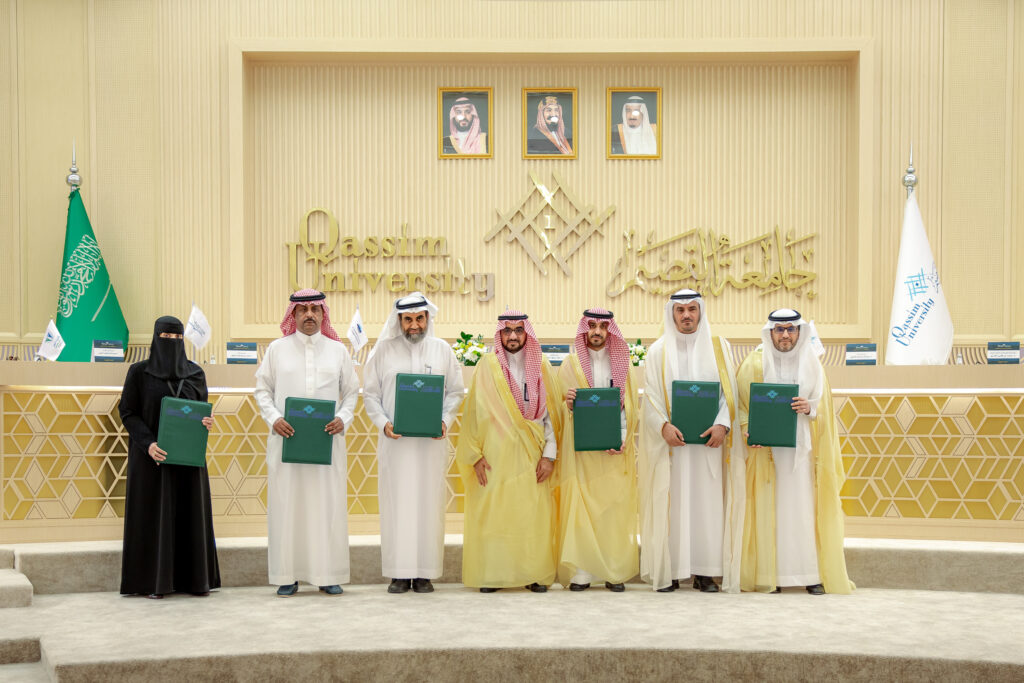Within the framework of enhancing integration between public and private higher education institutions, Qassim University signed on Sunday, 26 Rabi'II 1447H, at the King Abdulaziz Conference Center, a multilateral memorandum of understanding with private universities and colleges in Qassim region, including Future University, Sulaiman Al Rajhi University, Buraidah Private Colleges, Al-Ghad Colleges for Applied Medical Sciences, and Unaiza Private Colleges, with the aim of developing educational programs and outputs and supporting the objectives of Saudi Vision 2030 in building a competitive and sustainable educational system.
The memorandum was signed by Qassim University President Prof. Dr. Mohammed bin Fahad Al-Sharekh, Future University President Dr. Mohammed bin Saleh Al-Shitiwi, Sulaiman Al-Rajhi University President Dr. Mohammed bin Abdullah Al-Muhaimid, Buraidah Community Colleges Board of Trustees Chairman Prof. Ahmed bin Abdullah Aba Al-Khail, Dean of Al-Ghad College of Applied Medical Sciences in Riyadh and Qassim, Dr. Fahad bin Saad Al-Qarni, and Chairman of the Board of Trustees of Unaiza Community Colleges, Dr. Abdullah bin Saleh Al-Shteiwi.
Under the MoU, the entities cooperate in developing joint academic and professional programs and activating bridging paths between different disciplines and colleges, in addition to transferring and exchanging best practices in the fields of digital transformation, international classification, and sustainability of institutional excellence, in line with the strategic plans of the parties and promoting integration in roles and outputs.
The memorandum also includes organizing joint scientific conferences, seminars and workshops, building human and professional capacities through training and qualification programs and exchange of experiences, and promoting research and applied cooperation in areas of common national priority.
This cooperation comes as an extension of Qassim University's efforts to build effective partnerships with higher education institutions and employ their capabilities and expertise to contribute to achieving sustainable development, raise the efficiency of academic, research and administrative performance, and enhance the region's competitiveness in light of the national development goals.


